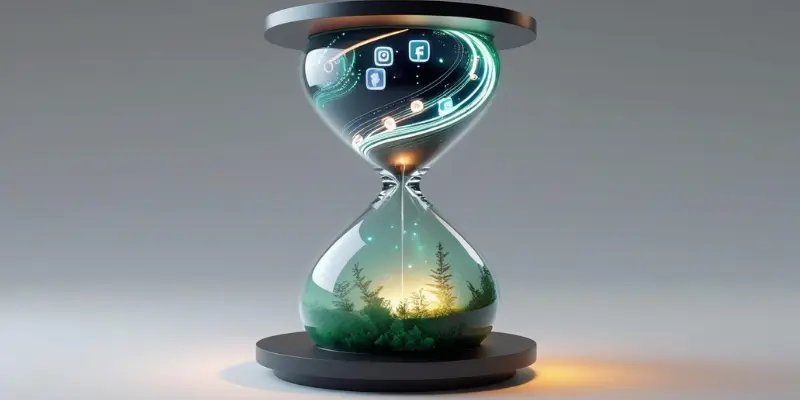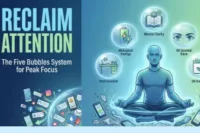Comparison Culture Is Stealing Your Joy: The Ultimate Guide to Reclaiming Your Well-being (2025)
Published: 09/07/2025
Do you find yourself endlessly scrolling through Instagram or Facebook, feeling a pang of inadequacy with every ‘perfect’ post you see? You’re not alone. What begins as innocent curiosity often spirals into a comparison trap. The truth is, comparison culture isn’t just a fleeting thought—it’s a pervasive force silently eroding our happiness and mental well-being.
In today’s digital world, comparison culture has become a silent epidemic, driven largely by social media platforms. It’s the constant urge to measure yourself against others, whether it’s their achievements, looks, lifestyle, or success. What you might not realize is that this habit, amplified by the curated images and highlight reels of social media, is slowly chipping away at your sense of self-worth.
At its core, comparison culture steals your joy. It creates a constant sense of inadequacy, making you feel as though you’re not measuring up to others. What once felt like a natural way to connect with the world has now become a thief of your inner peace and happiness.
But don’t worry, there is a way out. In this post, we’ll dive deep into understanding how comparison culture impacts your well-being and explore actionable strategies to break free from it. By the end of this guide, you’ll not only recognize the harmful patterns, but you’ll also have the tools to reclaim your authentic self and your joy.
In the following sections, we’ll uncover the psychological roots of comparison culture, discuss its hidden costs on your mental health, and share practical steps you can take to regain control. This ultimate guide will empower you to stop measuring yourself against others and start embracing your own unique path to happiness.
Understanding Comparison Culture: What It Is & Why It’s So Pervasive
Comparison culture is more than just feeling envious of others. It’s a societal norm that has been deeply ingrained in us, amplified by the digital age’s unprecedented access to curated lives. We’re constantly surrounded by images of what success, happiness, and beauty ‘should’ look like. And often, it leads us to evaluate ourselves based on these external metrics rather than our internal worth.
At its core, comparison culture is the perpetual self-evaluation against others. This process is often subconscious, a default way of measuring our achievements, appearance, or status. What makes it even more insidious is that it’s rarely a conscious decision—it simply happens when we see others’ ‘highlight reels’ or accomplishments and measure our own progress against them.
The Digital Amplifier: How Social Media Fuels the Fire
In the modern world, social media is a powerful amplifier of comparison culture. Platforms like Instagram, TikTok, and Facebook are built around a visual culture that highlights the best moments of people’s lives. What we see on our feeds is often a curated version of reality—only the perfect, polished, and edited moments make it to the surface.
These visual-centric platforms foster a sense of ‘highlight reels vs. reality,’ creating a false sense of what life should look like. While these posts are often filtered to perfection, they set unrealistic standards that everyone strives to meet—whether consciously or not.

What’s more troubling is that social media algorithms are designed to keep us hooked. They thrive on engagement, feeding us endless streams of content that encourage us to keep scrolling. These algorithms create echo chambers, showing us only content that we ‘like’ or that aligns with our current beliefs. The result? A continuous loop of comparison, one post after another, reinforcing feelings of inadequacy.
This cycle fuels what we call FOMO (Fear of Missing Out), which only intensifies the pressure. Watching others live their ‘perfect’ lives on social media can make you feel like you’re missing out on experiences, achievements, or connections that everyone else seems to be enjoying.
The Psychological Roots: Why Our Brains Get Hooked
But why do we keep comparing ourselves to others, even when we know it harms us? The answer lies in our brain’s hardwired tendencies, shaped by both evolution and social learning.
From an evolutionary standpoint, humans have always relied on social comparison as a means of survival. Historically, gauging our place in the social hierarchy was essential for gaining access to resources and forming alliances. Our ancestors who were better at social comparison were more likely to thrive, which is why this instinct remains so powerful today.
In addition, social learning theory tells us that we learn by observing others. Whether it’s how to act, what to wear, or what success looks like, we tend to model our behavior based on the people around us—especially those who are perceived as successful or influential.
Lastly, our early experiences play a significant role. From our upbringing and schooling to the messages we received growing up about success, worth, and validation, all these factors shape how we engage in comparison today.
The Hidden Costs: How Comparison Culture Steals Your Joy & Well-being
One of the most immediate and damaging effects of comparison culture is the erosion of self-esteem. Constantly comparing yourself to others creates a lingering feeling of ‘not good enough.’ This is often accompanied by imposter syndrome—the belief that you don’t deserve your success, and that you’re simply ‘faking it.
As the profound spiritual teacher and author Iyanla Vanzant powerfully states:
Comparison is an act of violence against the self.Iyanla Vanzant
When your self-worth becomes reliant on external validation—whether it’s likes, comments, or outward achievements—you lose sight of your intrinsic value. This leads to a diminished sense of accomplishment. Even when you achieve something meaningful, it can feel hollow because your success is measured against someone else’s, not your own journey.
The result? A cycle of negative self-talk. You begin to undermine your accomplishments, question your abilities, and, ultimately, feel like you’re not enough. It’s this constant mental chatter that chips away at your confidence and leaves you feeling inadequate, no matter how much you’ve actually achieved.
Increased Anxiety, Stress, and Depression
Comparison culture doesn’t just affect your self-esteem—it can significantly impact your mental health. The constant pressure to perform, keep up, or achieve more leads to heightened anxiety and stress. Whether it’s comparing your career, relationships, or appearance, the fear of not measuring up is ever-present..
For many, this pressure becomes overwhelming. The desire to constantly prove yourself can trigger feelings of anxiety—fear of judgment, fear of failure, and a sense that you’ll never live up to the idealized versions of others’ lives.
Studies have shown a clear link between heavy social media use and mental health decline. The more time you spend comparing your life to what you see online, the more likely you are to experience feelings of inadequacy, loneliness, and even depression. The curated perfection of others’ lives creates unrealistic standards that can leave you feeling like you’re always falling short.
Sabotaging Relationships & Genuine Connection
Comparison doesn’t just harm your mental health—it can also sabotage your relationships. When you’re constantly measuring your life against others, it’s easy to fall into feelings of resentment or jealousy. This can strain friendships, family bonds, and romantic relationships.

The more you compare yourself to others, the more likely you are to feel disconnected from those around you. You might start withdrawing, feeling alienated, or thinking that others are doing better than you. Instead of celebrating each other’s successes, you begin to feel envious or like you’re competing with your closest friends and family members.
In the end, comparison creates surface-level interactions, where relationships are more about keeping up appearances than fostering genuine bonds. This detachment prevents you from experiencing the depth of real connection, leaving you feeling isolated despite being surrounded by others.
Hindering Growth & Authenticity
Lastly, comparison culture stifles personal growth and authenticity. When you’re constantly measuring your progress against someone else’s, it’s easy to lose sight of your own path. You begin to pursue goals based on what others are doing, not what you truly desire or value.
Rather than pursuing goals that align with your values and passions, you end up chasing an ideal that’s not even yours. This can lead to a sense of frustration and stagnation, as you’re constantly striving to meet someone else’s standard, not your own.
The pursuit of someone else’s ideal life stifles your own unique potential. You lose touch with what truly matters to you, focusing more on outward validation than internal fulfillment. Eventually, this leaves you feeling stuck, unsure of what you want, and disconnected from your authentic self.
Reclaiming Your Joy: Practical Strategies to Break Free from Comparison
The first and most important step in breaking free from the cycle of comparison is cultivating self-awareness. You can’t change what you don’t recognize, and self-awareness allows you to identify when and why you engage in comparison. It helps you understand your triggers and take control of your reactions.
Identify Your Triggers: What Makes You Compare?
Start by identifying what triggers your comparisons. Is it scrolling through social media? Seeing a friend’s success? The next time you feel the familiar pang of inadequacy, stop and ask yourself: What caused this feeling? Was it a specific person, platform, or situation?

Journaling for Insight: Track Your Feelings, Thoughts, and Comparison Patterns
Journaling is a powerful tool for gaining insight into your comparison patterns. Write down your feelings when you experience comparison—what thoughts arise? Are there certain situations or people that consistently trigger these thoughts? Over time, this practice will help you recognize patterns and identify ways to break the cycle.
Mindful Observation: Catch Yourself in the Act Without Judgment
Mindfulness allows you to observe your thoughts without judgment. When you catch yourself comparing, simply notice it without adding self-criticism. Acknowledge that this is a normal human tendency, and then gently redirect your focus back to the present moment or to something positive about yourself.
Digital Detox & Mindful Social Media Use
Digital detox is a term that’s often thrown around, but what does it really mean? It’s about intentionally creating space between you and your devices to recalibrate your mind. By becoming more mindful of your social media use, you can significantly reduce the influence comparison culture has on your well-being.
Curate Your Feed: Unfollow Accounts That Trigger Negativity. Follow Inspiring Ones
One of the simplest and most effective ways to break free from comparison is by curating your social media feed. Unfollow accounts that trigger negative thoughts or feelings of inadequacy. Instead, follow accounts that inspire and uplift you, promoting positivity and self-empowerment.
Set Time Limits: Use App Timers, Schedule Offline Blocks
Setting time limits for social media use is an excellent way to prevent endless scrolling. Many apps have built-in timers to track usage. Set a limit and stick to it. Additionally, scheduling regular offline blocks—like during meals or before bed—can help you disconnect and reset your mind.

Intentional Engagement: Only Scroll with a Purpose
Mindful social media use means engaging with intention. Instead of mindlessly scrolling, decide in advance what you want to achieve from your time online—whether it’s connecting with a specific friend, learning something new, or simply taking a break.
The ‘Digital Fast’: Short Breaks to Reset Your Perspective
A ‘digital fast’ doesn’t mean abandoning your devices for weeks—it’s about taking short, intentional breaks from social media. Try a 24-hour social media detox or a weekend offline retreat. These breaks give you the mental space to reset and realign with what truly matters to you.
Strengthening Your Inner Core: Building Unshakeable Self-Worth
Reclaiming your joy means rediscovering and strengthening your inner worth. Building self-esteem from within—rather than relying on external validation—can protect you from the constant pull of comparison. By focusing on your internal resources, you’ll start to feel more grounded and confident in your own skin.
Practice Gratitude Daily: Focus on What You Have, Not What You Lack
Gratitude is a simple yet powerful way to shift your focus. Instead of comparing yourself to others, start by focusing on what you have. Make it a daily practice to write down three things you’re grateful for—no matter how small. This habit rewires your brain to notice the abundance in your life, reducing the tendency to compare.
Celebrate Your Unique Journey: Acknowledge Your Progress, However Small
Comparison makes us forget that everyone’s journey is different. Take a moment each day to celebrate your progress, however small. Whether you’ve learned a new skill, made a positive change, or simply survived a tough week, acknowledging your growth fosters self-compassion.
Focus on Self-Compassion: Treat Yourself with Kindness, Like a Good Friend
Self-compassion is essential in breaking free from comparison. When you feel tempted to compare, remind yourself to be kind, just as you would to a close friend. Talk to yourself with empathy and understanding, and avoid harsh self-judgment.
As Dr. Kristin Neff, a leading researcher in the field of self-compassion, beautifully explains:
With self-compassion, we give ourselves the same kindness and care we’d give to a good friend.Dr. Kristin Neff
Define Your Own Success: What Truly Matters to You?
Finally, take the time to define what success means to you—independently of others’ standards. What are your values? What goals do you want to pursue? By establishing your own definition of success, you can focus on your path, instead of measuring yourself against someone else’s.
Shifting Your Mindset: Reframing Comparison
Shifting your mindset is key to breaking free from comparison. Instead of seeing comparison as a negative, learn how to use it as a tool for inspiration and personal growth.
Comparison as Inspiration (Not Defeat)
Instead of viewing others’ success as a threat, see it as inspiration. Use their achievements as motivation to push yourself toward your own goals, but don’t internalize their success as your failure. Remember, their journey isn’t yours.
The Power of Enoughness: Realizing You Are Already Whole and Sufficient
A key shift in mindset is embracing the power of enoughness. Realize that you are already whole, and you don’t need to compare yourself to others to feel fulfilled. You are enough, just as you are.
Embrace Imperfection: The Beauty of Vulnerability and Authenticity
Perfection is an illusion. Embrace imperfection, and recognize the beauty in being vulnerable and authentic. It’s okay to not have everything figured out. Your imperfections make you unique and human.
Taking Action: Concrete Steps for Daily Practice
Reclaiming your joy requires daily practice. Here are a few concrete steps you can take to gradually shift away from comparison and towards a more authentic, fulfilling life.
Set Personal Goals (Not Comparative Ones)
Start by setting personal goals that are aligned with your values, not comparative benchmarks. Focus on your own growth trajectory, and celebrate progress, no matter how small.
Invest in Real-Life Connections
Prioritize real-life, in-person connections. Spending quality time with loved ones creates deeper bonds and reminds you of what truly matters beyond social media highlights.
Learn a New Skill or Hobby
Engage in a new skill or hobby that excites you. This not only builds confidence but also shifts the focus away from comparison, fostering growth on your terms.
Seek Professional Support (When Needed)
If comparison has taken a significant toll on your well-being, consider seeking professional support. Therapy or coaching can provide valuable tools and insights to help you regain your balance.
Living Authentically: Your Life Beyond Comparison
Imagine a life where you no longer feel the pressure to measure up to others’ expectations. Living authentically means shedding the constant weight of comparison and embracing who you truly are. This freedom allows you to focus on what truly matters to you, leading to reduced stress and a deeper sense of joy.
When you stop comparing yourself to others, you create space for self-acceptance and inner peace. The energy that was once spent in self-criticism or envy can now be channeled into things that bring you happiness—whether it’s pursuing a passion, nurturing relationships, or simply enjoying the present moment.
Living authentically also means deeper, more meaningful connections with others. When you stop pretending to be someone you’re not, you’re able to form relationships that are based on mutual respect, authenticity, and understanding—not on superficial metrics like likes or followers.
Embracing Your Unique Path
Your journey is unique, and there is no one-size-fits-all timeline for success. It’s easy to fall into the trap of comparing your progress to others’, but the truth is, every path is different. Some people may achieve their goals early, while others may take a bit longer. And that’s okay.
The beauty of living authentically lies in the freedom to focus on your own journey, regardless of external timelines. Instead of constantly measuring your success against someone else’s, you get to create your own definition of success—one that’s aligned with your values, passions, and desires.
By embracing your unique path, you begin to experience personal fulfillment in its truest form. The pressure to keep up with others melts away, leaving room for you to live life on your own terms and celebrate your unique timeline and progress.
Becoming an Agent of Change (Optional, but Powerful)
When you break free from comparison, you don’t just change your life—you can also inspire those around you to do the same. By living authentically and leading by example, you become a beacon of positive change in a world that often encourages people to measure their worth against others.
You don’t have to be an influencer or public figure to make a difference. The change starts within your own circle—whether it’s friends, family, or colleagues. When you stop participating in the comparison game, others are likely to notice and be inspired by your ability to live freely and confidently.
Leading by example means choosing authenticity over perfection. It means showing up as your true self, embracing your flaws, and refusing to participate in the cycle of comparison. As you do this, you’ll encourage others to do the same, creating a ripple effect of authenticity that extends beyond yourself.
Conclusion: Your Journey to Joy Begins Now
We’ve explored how comparison culture silently impacts your well-being, eroding self-esteem, fostering anxiety, and even sabotaging relationships. Through the strategies we’ve discussed—such as cultivating self-awareness, curating your social media feed, and shifting your mindset—you can begin to reclaim your joy and break free from the cycle of comparison.
Remember, the path to living authentically and reclaiming your well-being is not a one-time fix—it’s an ongoing journey. Each day offers a new opportunity to apply these strategies and make conscious choices to live a life that reflects your true self.
The key message here is simple: comparison culture is robbing you of your joy, but you have the power to break free. It’s not about perfection—it’s about progress. By embracing your uniqueness, focusing on your personal growth, and shifting your mindset, you can create a life that is genuinely yours, free from the pressures of comparison.
Now that you’ve learned the strategies to overcome comparison, it’s time to take action. Start implementing these strategies today and watch how your mindset—and your life—begin to transform.
Want a quick reference to track your progress? Download our free printable worksheet to help you stay on track and measure your growth as you break free from comparison culture.
“We’d love to hear from you! Share your thoughts in the comments below – what’s one strategy you’ve used (or plan to use) to fight comparison? Your insights might just inspire someone else on their journey!”
Remember, you are enough. Your journey is yours to define, and the potential for a happier, more fulfilled life is already within you. Reclaim your joy today and step into the life you’ve always deserved!
Your Questions, Our Answers: Unlocking Freedom from Comparison
While the human tendency to compare ourselves to others is ancient, modern “comparison culture” is amplified by social media. The constant, curated display of others’ lives creates unprecedented opportunities for upward comparison, making it a more pervasive and intense experience than ever before.
Social media fuels comparison by showcasing highly curated, often unrealistic “highlight reels” of others’ lives. Algorithms also contribute by prioritizing engaging content, which can inadvertently lead to endless exposure to idealized images and achievements, intensifying feelings of inadequacy.
Constant comparison can significantly harm mental well-being, leading to decreased self-esteem, increased anxiety and stress, feelings of envy, and even symptoms of depression. It can make you feel perpetually “not good enough” and erode your sense of personal achievement.
Yes, comparison can sometimes be healthy if approached with the right mindset. When you compare yourself to someone you admire, and it sparks “benign envy” (inspiring you to improve yourself) rather than “malicious envy” (wanting them to fail), it can be a powerful motivator for personal growth. The key is to use it as a stepping stone, not a stumbling block.
Start by cultivating self-awareness. Notice when and where feelings of inadequacy or envy arise. Is it specific social media platforms, certain people, particular life events (e.g., career milestones, relationship statuses), or even specific times of day? Journaling your feelings can help you identify these patterns.
The very first step is conscious awareness. Recognize when you’re engaging in comparison, acknowledge the negative feelings it brings, and then gently redirect your focus back to your own path. This simple act of noticing is powerful.
Begin by setting small, achievable boundaries. This could include turning off non-essential notifications, designating specific “tech-free” hours each day (like during meals or before bed), unfollowing accounts that trigger negative feelings, or taking short breaks from social media altogether.
Focus on self-compassion, treating yourself with kindness rather than harsh judgment. Practice gratitude daily by appreciating what you have. Celebrate your own small victories and progress. Define your success metrics based on your values, not external achievements.
When you feel envy, consciously try to reframe it. Instead of focusing on what you lack, ask yourself what you can learn from the other person’s success. Use their achievements as proof of what’s possible, and then channel that energy into your own goals rather than negative self-talk.
It’s unlikely to completely eliminate all forms of comparison, as it’s a natural human tendency. However, it is absolutely possible to significantly reduce its negative impact and learn to manage your reactions to it. The goal is to make it a less frequent, less powerful, and less joy-stealing habit.

- Be Respectful
- Stay Relevant
- Stay Positive
- True Feedback
- Encourage Discussion
- Avoid Spamming
- No Fake News
- Don't Copy-Paste
- No Personal Attacks

- Be Respectful
- Stay Relevant
- Stay Positive
- True Feedback
- Encourage Discussion
- Avoid Spamming
- No Fake News
- Don't Copy-Paste
- No Personal Attacks





